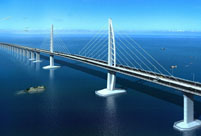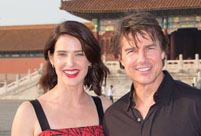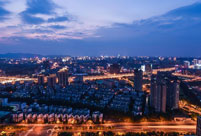

BEIJING, Dec. 7 (Xinhua) -- A memorial rite extending only condolences is said to be the focus of Japanese Prime Minister Shinzo Abe's upcoming visit to Pearl Harbor of the United States.
Would it suffice to comfort, as Abe plans, the more than 2,000 lives of the U.S. military lost in the Japanese surprise attack 75 years ago?
No apology would be offered during Abe's visit, it has been announced, for launching war without declaration. And would this help voice determination not to repeat the tragedy of war?
Such a vow is just another point Japanese media said Abe will highlight at the ceremony to be held during his trip on Dec. 26-27.
These would substantiate largely the first trip to Pearl Harbor by a Japanese Prime Minister since Dec. 7, 1941, when Japan launched a sudden attack on the U.S. naval base in Hawaii.
The Pearl Harbor attack propelled the United States into World War II and ushered in ferocious sea battles in the Pacific that would finally force Japan to surrender in 1945.
This is exactly the site, which is both historic and symbolic, that Abe has chosen to demonstrate postwar reconciliation with the United States, but with "no apology."
The trip came after U.S. President Barack Obama paid a visit to Hiroshima earlier this year, where the world's first atomic bomb was dropped by the United States in August 1945. The visit was the first by an incumbent U.S. president.
Since delivering a speech at the U.S. Congress speaking of Pearl Harbor in 2015, Japanese media report said, Abe has been weighing up how to manifest the significance of a visit to the historic site, as well as how to publicize the importance of Japan-U.S. alliance there.
The fact itself indicates a diplomatic show and a political calculation on the Japanese part, which makes the Japanese position of no apology more suggestive.
The no-apology line betrays Abe's revisionist view of the war history.
Pearl Harbor means a lot to Americans. It's hard to know what the Americans would think when the site becomes a stage for a Japanese politician to spread history revisionism.
Neither will one know whether the Americans have ever imagined they would fall victim to Japan again 75 years after, for the latter's intended reinforcement of a military alliance with the United States.
 Top 10 Chinese tech and engineering marvels
Top 10 Chinese tech and engineering marvels Tom Cruise in Palace Museum
Tom Cruise in Palace Museum Home-made plane completes test flight in Chicago
Home-made plane completes test flight in Chicago The untold stories of women in the Long March
The untold stories of women in the Long March Female soldiers on Frigate Jingzhou
Female soldiers on Frigate Jingzhou Top 10 most beautiful Chinese athletes in Rio
Top 10 most beautiful Chinese athletes in Rio Shenzhen seizes 549 tons of illegally smuggled clothing
Shenzhen seizes 549 tons of illegally smuggled clothing Chinese actor Wang Baoqiang divorces wife, fires manager
Chinese actor Wang Baoqiang divorces wife, fires manager Hangzhou: host city of G20 Summit
Hangzhou: host city of G20 SummitNude pictures of female debtors circulate on Chinese social…
Skeleton children of Mosul: Shocking images shows emaciated…
Op-Ed: Trump's irrational China bashing shows his ignorance…
Chinese-Americans discontent with White House’s refusal to …
Experts denounce speculation that Chinese chips cause U.S. …
 Top 10 livable Chinese cities
Top 10 livable Chinese cities 10 Chinese cities with most beautiful night view
10 Chinese cities with most beautiful night view Top 10 summer resorts in China
Top 10 summer resorts in China Top 10 most competitive Chinese cities
Top 10 most competitive Chinese cities Proper responses to Trump’s provocations
Proper responses to Trump’s provocations Chinese overseas performances reveal growth of classical music at home
Chinese overseas performances reveal growth of classical music at home Doctors from other regions help Tibet with its high rate of child congenital disease
Doctors from other regions help Tibet with its high rate of child congenital disease Chinese women share their journey of training like VS angel Gigi Hadid and other famous lingerie models
Chinese women share their journey of training like VS angel Gigi Hadid and other famous lingerie models